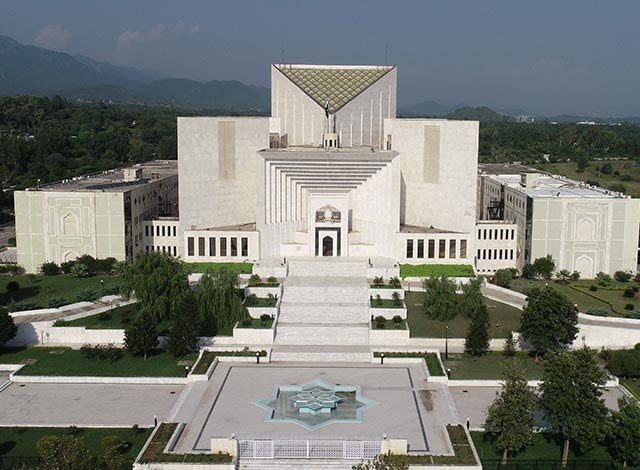ISLAMABAD:
The Supreme Court (SC) has ordered the Environmental Protection Agency (EPA) of Khyber-Pakhtunkhwa (K-P) to submit a detailed report on the environmental compliance and safe distance of stone-crushing plants operating in the province.
Justice Syed Mansoor Ali Shah, in a nine-page written order, highlighted the existence of 900 stone-crushing plants in K-P.
The court directed the EPA to assess these plants for compliance with the National Environmental Quality Standards (NEQS) and to take appropriate action if they fail to meet the standards. The EPA’s findings must be submitted before the next hearing date.
The case revolves around a constitutional petition challenging the legality of Rule 2(c) and Schedule-IV of the Khyber Pakhtunkhwa Power Crushers (Installation, Operation, and Regulations) Rules, 2020, arguing they violate Sections 7 and 19 of the Act and the fundamental rights enshrined in Articles 9, 23, 24, and 25 of the Constitution.
The three-judge bench, led by Justice Shah, noted that the NEQS were last updated in 2010, urging both federal and provincial governments to update these standards within three months.
The updated NEQS are to be presented in the first week of November along with the EPA’s report on the stone-crushing plants.
In response to the EPA’s initial findings, the court ordered the immediate shutdown of three stone-crushing plants that failed to comply with the NEQS. These plants may resume operations only after proving compliance with NEQS, verified by a technical expert. The local police are instructed to assist the EPA in enforcing this order.
Justice Shah emphasized the critical role of NEQS in promoting sustainable development and protecting public health. He urged the federal and provincial governments to prioritize updating the standards to align with international environmental principles.
The court’s order reflects a broader commitment to environmental constitutionalism, intertwining the protection of fundamental rights with sustainable development principles.
This approach aligns with Pakistan’s ratified international legal instruments, including the recent United Nations General Assembly Resolution recognizing the right to a clean and healthy environment.
The court also acknowledged the historical expansion of fundamental rights in Pakistan, noting the linkage between the right to life and the right to a healthy environment, further supported by Islamic environmentalism principles.
The next hearing is scheduled for the first week of November, where updated NEQS and compliance reports from the EPA will be reviewed.







